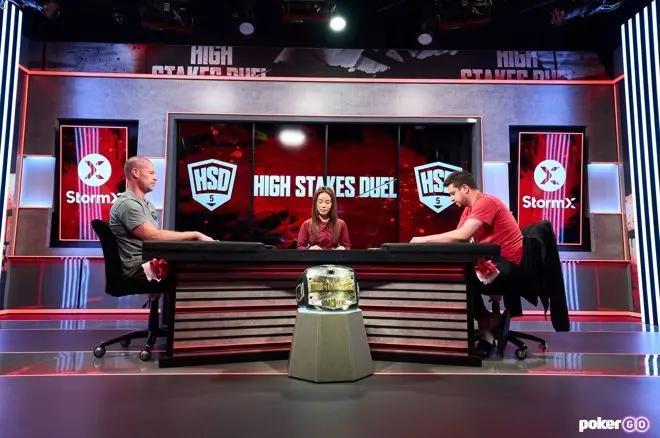 A closely-monitored court case, concerning a tribal nation´s right to host an online gambling platform on its own lands, appears to have come to a close following a Court of Appeals verdict. However, the Court of Appeals´ verdict leaves room for maneuver and a higher court could find in the tribal nation´s favor.
A closely-monitored court case, concerning a tribal nation´s right to host an online gambling platform on its own lands, appears to have come to a close following a Court of Appeals verdict. However, the Court of Appeals´ verdict leaves room for maneuver and a higher court could find in the tribal nation´s favor.
In July 2014, the Iipay Nation of Santa Ysabel [geolink href=”https://www.usafriendlypokersites.com/santa-ysabel-tribe-launch-online-poker-site-california/”]launched PrivateTable.com[/geolink] – an online play money poker site exclusively serving residents of California. The Santa Ysabel tribe claimed PrivateTable.com would eventually transition to a real money poker platform on the grounds that, under its [geolink href=”https://www.usafriendlypokersites.com/california-tribe-insists-online-poker-launch-bluff/”]compact with the state of California[/geolink], the tribe was allowed to offer non-house-banked Class II gambling on tribal lands.
The argument supporting the claim was that, as the poker platform´s server was located on tribal lands, the gambling activity was taking place on tribal lands and was in compliance with both the state compact and the Indian Gaming Regulatory Act (IGRA) 1988. The implications for online poker were huge as – had PrivateTable.com successfully launched as a real money poker platform – it could have opened the door for other tribal-run real money poker platforms across the country.
Ultimately the real money launch never happened. Software issues and the bankruptcy of the tribe´s intended payment processor combined to delay the launch, and – faced with an increasingly complex situation – the Santa Ysabel tribe partnered up with the nearby Alturas Rancheria tribe to launch a real money online bingo site – Desert Rose Bingo – using software and payment processing services supplied by Great Luck LLC. Almost immediately, the State of California [geolink =”https://www.usafriendlypokersites.com/california-files-lawsuit-vs-iipay-tribes-online-bingo-site/”]obtained a Temporary Restraining Order[/geolink].
State of California Argues Desert Rose Bingo is Illegal
The State of California argued that the real money online bingo site violated the tribe´s compact with the state by being an “electronic facsimile” of a bingo game which elevated its status from Class II gambling to Class III. The state – supported by the federal U.S. government – also alleged a violation of the Unlawful Internet Gaming Enforcement Act (UIGEA) and a violation of IGRA on the grounds that customers would make the decision to wager money on a game of bingo off tribal lands.
In December 2016, District Court Judge Anthony Battaglia made the temporary injunction permanent when ruling that Desert Rose Bingo did indeed violate UIGEA – although not siding with the state on the argument the real money bingo site violated its compact with the Santa Ysabel tribe. The Iipay Nation of Santa Ysabel appealed the ruling, and verbal arguments were heard back in March by Judges Margaret McKeown, Julio Fuertes, and Carlos Bea at the United States Court of Appeals for the Ninth Circuit.
Last week, Judge Carlos Bea delivered the verdict of the Appeal Court panel – upholding Judge Battaglia´s ruling that Desert Rose Bingo violated UIGEA. The judge wrote in his verdict that, in order to be in compliance with UIGEA, online gambling must be legal in both locations where bets are initiated and received. Therefore, regardless of whether IGRA protects gambling activity conducted on tribal lands, the transaction of placing a bet from outside tribal lands still constitutes a violation of the law.
Why the Online Gamble May Not Have Bitten the Dust Yet
There was an interesting footnote in Judge Bea´s written verdict that the Court of Appeal takes no position on whether the Iipay Tribe of Santa Ysabel would still be in violation of UIGEA if bets were accepted from customers located in jurisdictions in which bingo is legal. The state of California has an excessively long section dedicated to bingo in §326.5 of the Penal Code, which basically states that any organization can apply for a permit to host real money bingo games subject to certain restrictions.
Therefore, if the Iipay Nation of Santa Ysabel were to partner up with several charitable organizations and provide online bingo to the organizations´ customers, the Santa Ysabel tribe would technically not be in violation of UIGEA, would be protected by IGRA, and not be breaking its compact with the state. With regard to online poker – the Class II game the tribe originally intended to provide – the situation is a lot more complex, as online poker is neither legal nor illegal in California.
In theory, the Santa Ysabel tribe could take its case all the way to the Supreme Court, where it could argue that California´s failure to pass legislation to regulate online poker violates the tribe´s sovereign authority under Article 1, Section 8 of the U.S. Constitution. It is a long shot, and the Santa Ysabel tribe may not have the appetite (or the bankroll) for a prolonged legal battle; but, rather than bite the dust, this court case may develop into a dust storm that reignites the argument about whether tribal interests have the right to offer online poker – not just in California, but throughout the entire United States.




